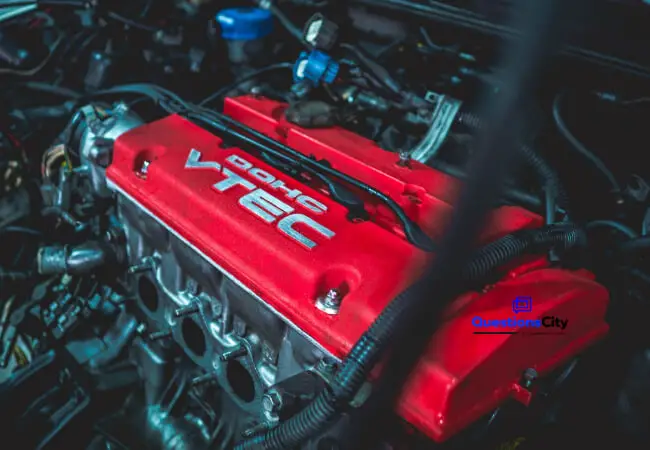Last Updated on August 16, 2021 by
An engine is a machine that produces motion. It changes energy, usually heats energy, into motion or movement so that work may be done. Men had tools for a long time before they had engines to power them. First, they had to depend on manpower or animal power to help them work their tools. Then they learned to harness the wind with sails and with windmills. When a windmill pumped water and ground grain, it was a kind of engine. The energy of falling water did work by turning water wheels.

But when men learned how to harness heat in an engine, our whole civilization began to change. Actually, the first known use of the heat from fire to power an engine took. place about 2,000 years ago. A Greek philosopher named Hero made the first steam engine. However, it was too small to do any work.
In 1705, Thomas Newcomen, an Englishman, invented a practical steam engine. It was used for pumping water out of coal mines. However, it used too much fuel in the eighteenth century, James Watt made an improved engine. He made valves that worked automatically so that no one had to stand by and operate the valves which made the piston move up and down.
In 1803, Robert Fulton used Watt’s steam engine to drive a boat. In the 1820s, Stephenson built a steam engine in England. The steam engine was heavy, however, because the burning took place in a furnace outside the boiler.
The petrol engine, which was developed by Nicholas Otto of Germany in 1878, was the first step toward solving the problem of weight. This engine did not need a separate furnace and was much lighter than a steam engine of the same horsepower.
FAQ
Who built the first engine?
Short Answer- In 1872, American George Brayton invented the first commercial liquid-fueled internal combustion engine.
What Are The 3 Types Of Engines?
There are three types of classical electrical engines: magnetic, piezoelectric, and electrostatic.
Who made the first diesel engine?
Short Answer- In the 1890s, Rudolf Diesel invented an efficient, compression ignition, internal combustion engine that bears his name.
What are the problems with diesel engines?
1. Difficult start.
2. Lack of power.
3. Contaminated fuel.
4. Faulty lead/acid storage battery.
5. Black exhaust.
What was first diesel or petrol?
Short Answer- On 10 August 1893, the first ignition took place, the fuel used was petrol. In winter 1893/1894, Diesel redesigned the existing engine, and by 18 January 1894, his mechanics had converted it into the second prototype.






